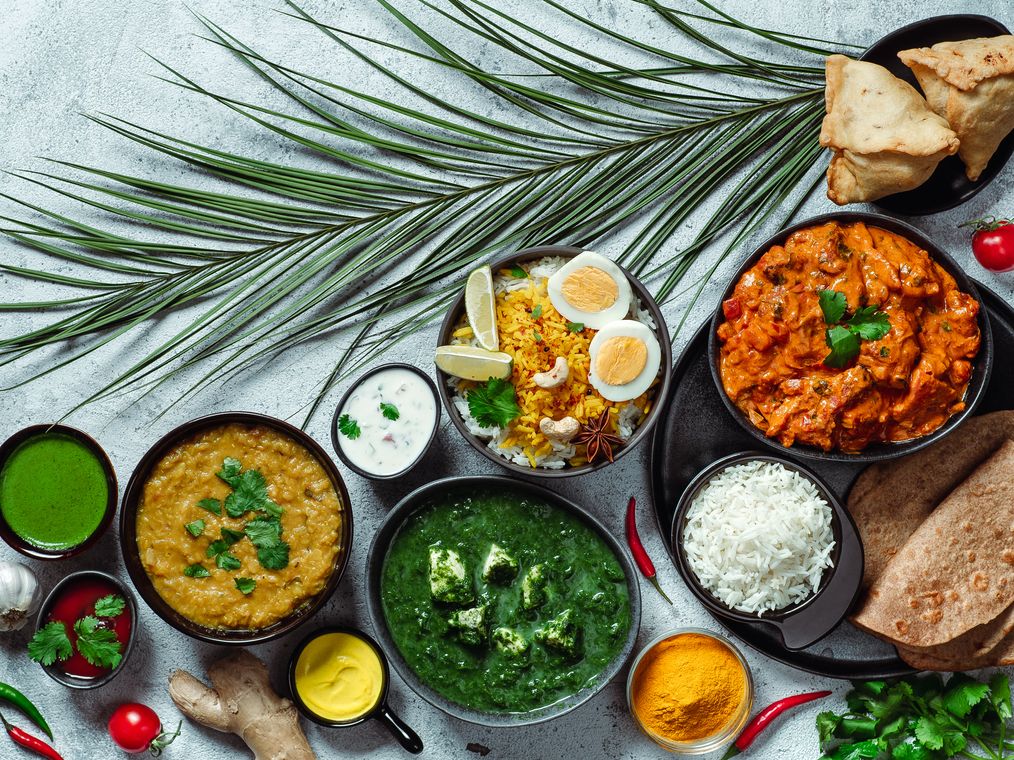
Learn About the 5 Common Misconceptions about Indian Cuisine
Indian food is a hugely popular cuisine, but it can be misunderstood and generalized. It comes in many different varieties with unique flavour profiles.
Some dishes are mild, while others are spicier. Some take a while to make, while others only take up a portion of your day. As popular as the ingredient may be, some recipes can be made where curry powder isn’t even necessary. Don’t let those opinions or the gossip some people spread get in your own experience with Indian food.
Here are five common misconceptions about Indian cuisine:
1. It Is Always Hot and Spicy
Indian food can be hot and spicy, but it doesn’t have to be. The spice in Indian food is why many people are told to avoid it.
Contrary to popular belief, spiciness is not an inherent part of Indian food; it’s a personal choice that others make. Each chef, restaurant, or cook can make food the way they want to balance sweet, salty, and savoury.
2. Indian Food Is Too Expensive
Indian restaurants are sometimes viewed as “fancy” or “special occasion” places, but that’s not always the case. Many Indian restaurants are inexpensive, with dishes that cost $10 or less. Even if you want to go to a more upscale establishment, you can still get a healthy and satisfying meal at a reasonable price.
3. It Is Fatty and Unhealthy
Indian food is well-known for the oils and spices used for cooking. Herbs and spices are used for many different reasons and are often used to preserve food. Sometimes, spices are also used to add flavour. Many Indian recipes call for ghee and fresh cream, which pack in many calories. This can also be true if recipes are not appropriately prepared.
There are plenty of recipes that don’t require these ingredients, and there are also ways to reduce calories in your recipes. So, you can use these ingredients in moderation. You can also try using low-calorie cooking approaches, like adding non-fat yogurt to your sauce. If you are wondering how to make Indian food healthy, here are two ways to do it.
4. It Contains Curry Powder
Curry comes from India, so it makes sense that many people think that curry is an inherent part of Indian food. Curry powder, a staple in curries, is an English import. It’s not used in many Indian dishes, and it’s not always necessary to create a marinade or sauce. While some recipes call for it, you can adjust the amount you use depending on your personal preferences.
5. It Is Difficult to Cook
Although some people might believe that you have to be a master chef to make Indian food, that’s not true. Indian cooking uses spices and techniques that are not that difficult to replicate at home. The main thing is to have the right set of spices, which are easy to get, whether online or in an Indian grocery store. You can buy a soup base and mix your spices to create your curry.
Conclusion
It’s easy to look at the country’s recipes and assume they are always spicy, oily, or fatty, so it’s unhealthy for your diet. You might think that preparing Indian dishes is difficult and time-consuming, but that’s certainly not always.
Indian food is delicious and healthy, so it’s worth trying. If you have been avoiding it in the past because you had misconceptions about it, stop making excuses and try these Indian recipes.
Veerji serves a wide range of Indian cuisine, including vegetarian and non-vegetarian alternatives, so that you may choose the perfect option for you. Our recipes are designed to take you to India and satisfy your appetites for the world’s most unique cuisines! Contact us today to enjoy an authentic Indian taste experience or work with us if you’re interested in owning a Punjabi restaurant franchise in British Columbia!




